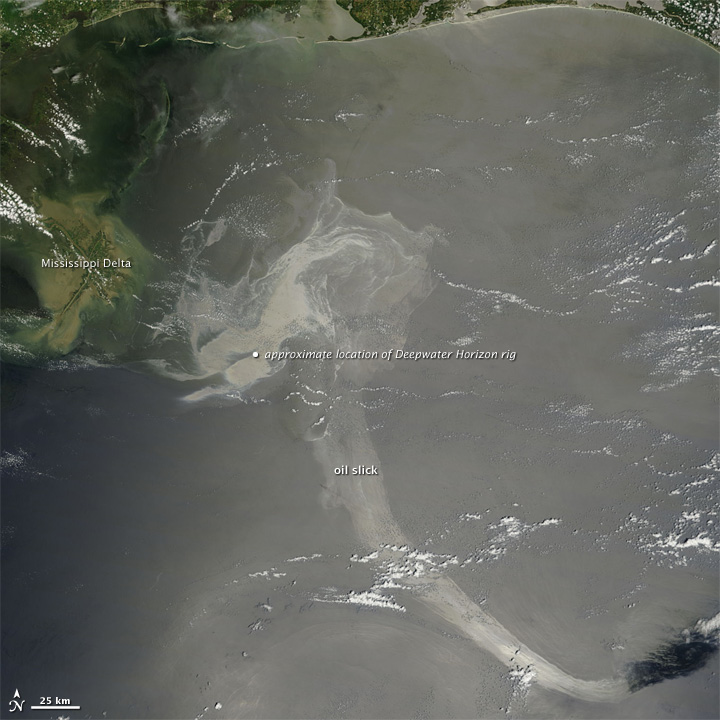 Afternoon wrap-up of what we know about what we don’t know about the gulf oil disaster:
Afternoon wrap-up of what we know about what we don’t know about the gulf oil disaster:
BP is now in charge of U.S./international waters? Perhaps they should change the name of the company to Poseidon… CBS news team threatened w/arrest by Coast Guard who said they were acting under BP authority.
(According to) NOAA director of marine mammal health and stranding response Teri Rowles, a veterinarian, impacts on “those species living in deep water, like sperm whales, may not be detected,” because dead whales simply disappear beneath the waves. Plus, the use of dispersants beneath the surface to break up the oil into droplets may make it more damaging to deep-sea wildlife. “Instead of having big chunks of oil that are very buoyant and move very quickly to the surface, you have microdroplets with an enormous surface-to-volume ratio, which then are captured by the viscosity of the seawater. They’re stuck down there,” says environmental chemist Jeffrey Short of environmental group Oceana, who has studied the aftereffects of the Exxon Valdez spill. “Ancient deep-water corals, which are suspension feeders, are extraordinarily efficient at accumulating microdroplets of oil. It’s a major unseen impact.”
Much of the oil will also end up trapped in big eddies—like the infamous Pacific Garbage Patch or the Sargasso Sea—which is where sea turtles and other ocean life like to congregate. “Most of those mortalities will never make their way to shore to be counted,” said NOAA national sea turtle coordinator Barbara Schroeder.
And that is not enough of an adverse effect to immediately cease using dispersants? As for human health:
Fishermen...are getting sick from the working on the cleanup, yet BP is assuring them they don’t need respirators or other special protection from the crude oil, strong hydrocarbon vapors, or chemical dispersants being sprayed in massive quantities on the oil slick.
And understand this clearly–The spill is getting worse despite insertion tube:
The massive Gulf of Mexico oil spill is growing despite British Petroleum’s effort to siphon some of the spewing crude from its ruptured deepwater well, the U.S. Coast Guard official leading the cleanup warned Tuesday.

